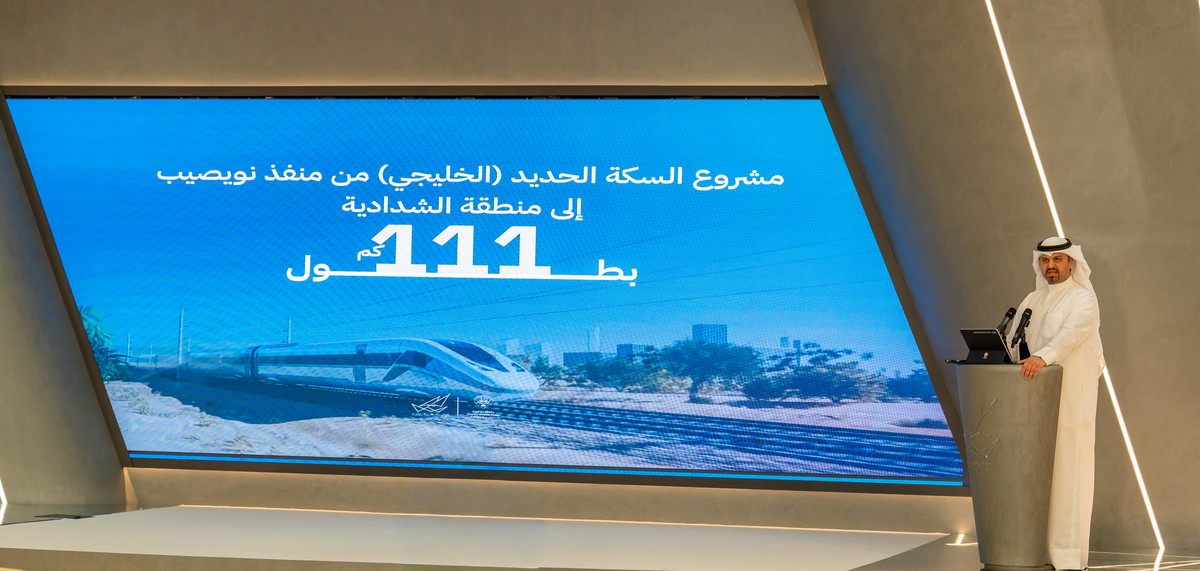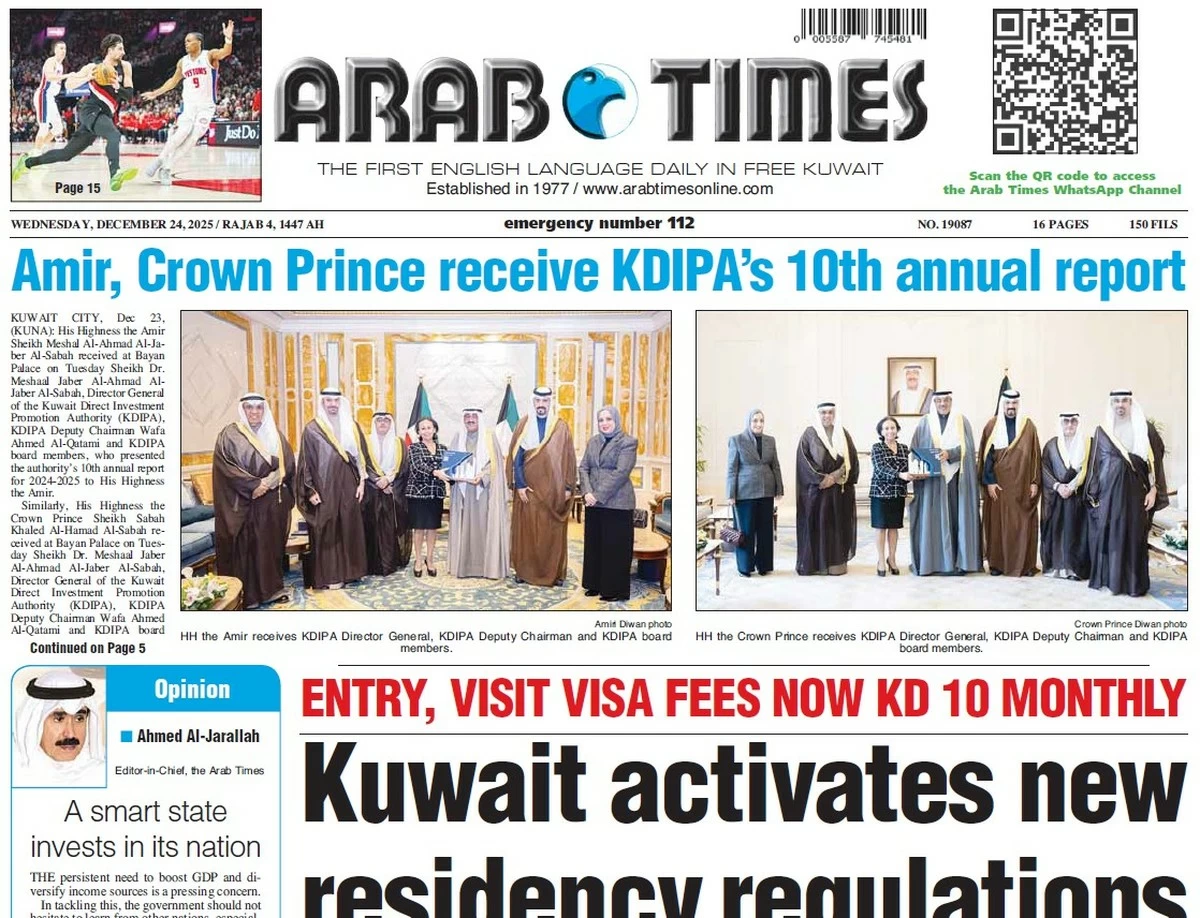26/11/2025
26/11/2025

KUWAIT CITY, Nov 26: Kuwait’s Ministry of Public Works on Wednesday unveiled a broad slate of completed and upcoming infrastructure projects, highlighting major progress in road maintenance, transport networks, governance, and digital transformation.
In a detailed briefing at the Government Communication Center, the ministry’s official spokesperson, Engineer Ahmad Al-Saleh, said the ministry had achieved “a qualitative leap” in road and infrastructure works, supported by expanded maintenance operations and major national development projects.
Al-Saleh announced that the ministry had implemented extensive maintenance contracts that included paving 9.5 million square meters of asphalt on internal roads across all governorates and 5.5 million square meters on highways. These works fall under 12 internal road maintenance contracts and six highway contracts, all aimed at improving road quality and efficiency.
He noted that the ministry is working according to a “clear and well-considered plan,” coordinated closely with the Ministry of Interior, to ensure smooth traffic flow during execution of these projects. He stressed that “the citizen’s voice is heard,” reaffirming the ministry’s commitment to addressing public needs and resolving obstacles.
Al-Saleh also outlined progress on the Gulf Railway project, which will link Kuwait with GCC countries. The project will stretch 111 kilometers from the Nuwaiseeb border crossing to the Shaddadiyah area, where a two-million-square-meter main station has been allocated. A high-speed rail link between Kuwait and Riyadh is included in the plan, with the final design expected from the consultant in January and implementation targeted for completion between December 2028 and 2030.
Turning to major projects, Al-Saleh said the contract for the Mubarak Al-Kabeer Port is set to be signed next month as part of a memorandum of understanding with China. He also highlighted notable progress on the new Kuwait International Airport project, including its passenger terminal, parking facilities, road network, and service structures, which he said will position the airport as a regional transport landmark.
He cited recent achievements such as the opening of the Darwazat Al-Abdulrazzaq intersection and the Avenues Bridge, as well as the near completion of major phases of the Damascus Street development, South Surra roads, and the Sabah Al-Nasser Bridge—all expected to ease traffic congestion significantly.
Addressing wastewater infrastructure, Al-Saleh pointed to the Umm Al-Hayman wastewater treatment plant, implemented as a public-private partnership and producing 500,000 cubic meters of advanced treated water for agricultural and landscaping use in central and southern regions. He added that development of the Kabd North wastewater treatment plant is underway to support the northern wastewater system and expand the use of treated water for afforestation.
Al-Saleh reaffirmed the ministry’s commitment to high standards, including the modernization of road laboratories, strengthening of the government testing and quality-control center, and the adoption of advanced technologies to inspect roadworks and ensure compliance with specifications.
He noted significant progress in governance, including adoption of the Corporate Governance Guide, participation in the “Performance” project with the National Anti-Corruption Commission (Nazaha), and implementation of a Code of Conduct to uphold integrity and accountability.
Digital transformation has also advanced, he said, with new e-services launched through the “Sahel” application and the development of a unified GIS system for highly accurate monitoring of road and maintenance projects. He added that maintenance contracts have now achieved 100% Kuwaitization, ensuring job security for Kuwaiti engineers and technicians and expanding training programs for operating wastewater facilities.
Al-Saleh concluded by thanking the political leadership and His Highness the Prime Minister for their continuous support and oversight. He also praised the cooperation of government entities and the public’s understanding during ongoing works, affirming that all efforts aim to deliver modern, sustainable infrastructure befitting the State of Kuwait.



